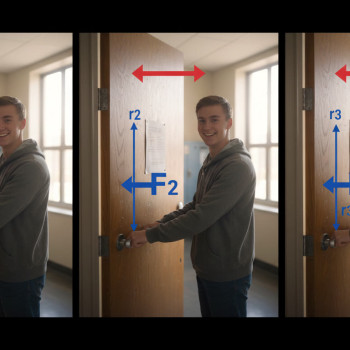Why this matters: fairness, trust, and your future
AP exams are more than a single high-stakes day. They’re a test of what you’ve learned, a credential that can open college opportunities, and a shared social contract: every student who takes the exam is entitled to an equal chance to do their best. When irregularities happen — whether a student uses unauthorized materials, a proctor makes an error, or technology fails — that contract is broken. That can harm an individual’s score and the credibility of the whole AP program.

What counts as an irregularity?
Not every minor hiccup is a full-blown security breach. Still, knowing the difference helps you act appropriately. Irregularities fall on a spectrum from benign administrative mistakes to deliberate cheating. Here are the major categories you’ll encounter:
Administrative or procedural problems
- Wrong start or end times for sections.
- Incorrect or missing instructions from the proctor.
- Problems with digital submission tools or the AP Digital Portfolio.
- Accommodations not provided as approved.
Security breaches and misconduct
- Using unauthorized devices during a paper or digital exam (phones, smartwatches, cameras).
- Bringing in or sharing prohibited materials (notes, cheat sheets).
- Copying answers from another student or collaborating during an individual exam.
- Attempting to take an exam for someone else or helping another person impersonate a test taker.
Content problems
- Ambiguous or apparently incorrect exam questions (rare, but possible).
- Leaks or online postings of exam material during or after administration.
When should you report something?
There are three practical rules to help you decide:
- Report immediately when the irregularity affects your ability to take the exam fairly (timing errors, lost time, missing accommodations).
- Report observed cheating or security breaches as soon as it’s safe to do so — ideally during the exam window or right after the incident.
- Report ambiguous questions or possible errors in exam content within the reporting window (usually shortly after the exam; follow exam-year instructions).
Timing matters not only for remedying immediate harm but also for preserving evidence: who was present, what exactly happened, and which materials or screenshots (if any) exist. Acting promptly helps exam administrators investigate accurately.
Who should you tell first?
The first step is usually local: bring the issue to your AP coordinator or the proctor on duty. They are trained to respond and to document what happened. If your problem isn’t resolved or if you feel uncomfortable talking to local staff, escalate to the official reporting options listed by the AP Program.
Simple escalation path
- Talk to the proctor immediately (if it’s safe and won’t disrupt the testing environment).
- If unresolved, speak to your AP coordinator or principal.
- If you’re homeschooled or there’s no coordinator, contact AP Services for Students via the official channels.
- Report suspected cheating or security breaches using the College Board’s test security reporting process.
How to report: a step-by-step checklist
Clear, calm documentation is the backbone of a fair investigation. Use this checklist to prepare a focused, helpful report:
- Be precise about time and place: date, test room, exam name, section and start/end time.
- Identify people involved by role first — proctor, AP coordinator, student — and include full names if you know them.
- Describe what you saw in objective terms. Avoid speculation. Stick to facts: what happened, who did what, and when.
- Note physical evidence: screenshots, photos (if allowed), exam materials, receipts for accommodations, or a written log of events.
- List witnesses who were present and are willing to provide statements.
- Explain how the event affected you or other students (lost time, distraction, compromised materials).
What to include in a written report
A short, factual narrative — 2–4 paragraphs — plus a bullet list of facts (time stamps, names, evidence) is usually best. Conciseness helps investigators see what matters quickly. Keep a copy for your records.
How the investigation typically works
After you make a report, the AP Program and your school will usually follow a standard sequence:
- Initial intake and confirmation of receipt.
- Collection of documentation from the school site (proctor logs, seating charts, digital logs).
- Interviews with the proctor, coordinator, and students involved.
- Review by test security staff at the AP Program to determine whether policies were violated.
- Decision and communication back to the school and, if appropriate, to the affected students.
Consequences vary depending on severity. They can range from corrected procedure notes to cancelled scores or bans from future College Board testing if deliberate misconduct is found.
What might happen to your score?
Outcomes are determined case-by-case. The investigation’s goal is to preserve fairness for all students. Here are common possibilities:
| Situation | Possible Outcome | Typical Rationale |
|---|---|---|
| Minor administrative error (shortened time) | Score submitted as usual or review for adjustment | If impact is negligible or can be documented as resolved. |
| Technical failure blocking submission | Alternate arrangement or score review | Evidence of failure and timing matters. |
| Deliberate cheating by a student | Score cancellation for those involved; possible ban | To protect exam integrity and deter cheating. |
| Widespread breach at a site | Scores for a class or site may be canceled | Systemic breaches undermine fairness for everyone. |
Common questions students ask
Will I get in trouble for reporting someone?
Students who report observed misconduct in good faith are participating in protecting the integrity of the testing process. Reporting responsibly is the right thing to do. Schools and the AP Program expect students to report issues that affect fairness. The focus of investigations is usually on the alleged violation, not the reporter.
Will colleges be notified?
Notification policies are specific to the AP Program’s rules and the particular issue. In many cases, routine administrative investigations do not result in college notification. For serious violations (cheating, repeat offenses), there can be broader consequences. The AP Program handles each case with privacy and due process in mind.
Can I appeal a decision?
Yes — if your score is canceled or an adverse decision affects you, there’s usually an appeal or review process. Appeals require supporting evidence or a compelling explanation. Keep copies of all communications and documentation to strengthen your case.
Examples and real-world scenarios
Concrete examples help make the abstract rules tangible. Below are realistic vignettes and practical takeaways.
Scenario A — The distracted proctor
During a 75-minute multiple-choice section, the proctor left the room for an extended period and came back late, which pushed the timing off by 10 minutes. Multiple students felt rushed. What to do: immediately tell the proctor when they return, ask for the time discrepancy to be noted in the proctoring log, and ask the AP coordinator to include the note in the report. Take a calm written note for yourself with timestamps and witnesses.
Scenario B — The student with a phone
A student across the room repeatedly glanced at a phone under the desk. Several nearby students noticed. What to do: if you can do so without confrontation, raise your hand and discreetly tell the proctor. If the proctor doesn’t act, report afterward to your coordinator, provide names of witnesses, and write down when and where the activity occurred.
Scenario C — Digital upload failed
You completed a performance task and used the AP Digital Portfolio, but your submission failed with an error message and no time stamps. What to do: take screenshots of the error (if allowed after testing), note exact times, and alert your AP coordinator immediately. Save any local files and follow up with AP Services for Students for recovery procedures.
How students can prepare to avoid accidental irregularities
Prevention matters and it’s mostly about being informed and prepared. Small steps you take before test day can reduce the chance you end up in a stressful reporting situation.
- Read the AP Exam Terms and Conditions carefully and early.
- Know what’s allowed and what’s not: devices, materials, and permitted breaks.
- Practice test-day routines a few times (arrival time, ID, permitted pencil types, etc.).
- Bring proof of accommodations and confirm they’re in place before the exam starts.
- Keep a written log if something unusual happens during the test — write times and short notes while details are still fresh.
How teachers and AP coordinators can help
Teachers and coordinators are the frontline for prevention and early resolution. Their training and clear communication reduce incidents:
- Run a short orientation before exam day that covers exam rules and what to report.
- Have a clear, visible proctoring plan and a backup in case a proctor must leave.
- Keep detailed seating charts, proctor logs, and incident forms handy.
- Test digital submission procedures ahead of time to reduce tech surprises.
What evidence matters most in investigations?
The strongest evidence is objective, time-stamped, and corroborated by multiple sources. Examples include:
- Seating charts and proctor sign-in/out logs.
- Digital logs from submission platforms that show timestamps.
- Photographs or screenshots taken within policy boundaries.
- Signed witness statements from other students or staff.
Dealing with stress and the emotional side
Reporting or being involved in an investigation can be emotionally draining. You might feel guilty, anxious, or worried about unfair outcomes. Here are practical coping steps:
- Talk it through with a trusted teacher, counselor, or parent who can help you keep perspective.
- Keep a factual record — it reduces the cognitive load of trying to remember details later.
- If your testing day was affected, remember that one event rarely defines your academic future — there are always paths forward.
How tutoring and support can help after an incident
If an irregularity affected your score or your confidence, targeted academic support can rebuild momentum. Personalized tutoring helps you focus on what’s in your control: improving skills, practicing under test-like conditions, and restoring confidence. Services like Sparkl offer 1-on-1 guidance, tailored study plans, expert tutors, and AI-driven insights that pin down your weak points quickly. When you pair thoughtful exam reporting with consistent study recovery, you regain agency.
Practical templates you can use
Below is a short, adaptable template you can copy into an email or report form. Keep it crisp and factual — investigators appreciate clarity.
| Report Template |
|---|
|
Subject: Report of Exam Irregularity — [Exam Name], [Date], [Location] Summary: On [date] during [exam name and section], I observed [brief factual description of what happened]. Details:
Contact: [your full name, student ID, phone, email] |
Final thoughts: responsibility, fairness, and moving forward
Reporting irregularities isn’t about getting someone into trouble for the sake of it. It’s about preserving fairness so that your score — and everyone else’s — reflects actual performance. Being informed, calm, and factual is the best way to contribute to a fair outcome. If you’re affected by an incident, remember: there are processes in place to investigate and remediate, and there’s support available to help you recover academically and emotionally.

Resources checklist — what to have at hand
- Copy of the AP Exam Terms and Conditions you agreed to.
- Your school’s AP coordinator contact information.
- Any screenshots or digital error messages (saved securely).
- Names and contact info for witnesses.
- Personal written notes (date- and time-stamped).
Closing: you’re not alone
AP exam day can feel intense — and when something goes wrong, it’s natural to feel uncertain. But the testing system is built with safeguards and procedures to handle irregularities fairly. Act promptly, document carefully, and reach out for support when you need it. Whether that’s an honest conversation with your AP coordinator or targeted help from a tutor to rebuild confidence, there are concrete next steps you can take. Reporting responsibly is part of being a good test taker and a thoughtful community member — and it helps protect the value of your hard work.
If you want help turning a setback into progress, consider a short, focused plan: a few 1-on-1 sessions, practice under timed conditions, and a review of test-day strategies. Personalized support — including tailored plans and tutor insights — can make the path forward clear and manageable.
Take a breath, document what happened, and keep moving forward. You’ve got more control than you think, and there are systems and people ready to help you through this.

















No Comments
Leave a comment Cancel